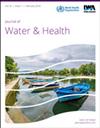Operationalising water safety plans for Melbourne – a large city case study
IF 2.5
4区 环境科学与生态学
Q3 ENVIRONMENTAL SCIENCES
引用次数: 0
Abstract
Abstract A wholesale/retail model delivers drinking water to over five million residents in metropolitan Melbourne (Australia). Water safety plans were implemented in 1999 ahead of being mandated in regulations in 2003. With over 20 years of WSP application, this collaborative paper prepared by the wholesaler and retailer utilities presents practical examples of drinking water quality risk management in challenging operational environments, highlighting lessons learnt, improvements made and outcomes achieved. Melbourne's supply systems comprise multiple types of supply sources, necessitating different tailored treatment configurations. Source waters range from an open catchment with multiple treatment barriers to protected catchment source waters requiring solely disinfection treatment (unfiltered) with gravity-driven supply. This makes for a diversity in case studies brought to this paper, and in turn a range of lessons likely to be of interest to the global WSP community. Discussion of the Melbourne utility experience highlights the importance of developing and continually improving control measures for ongoing (adaptive) risk reduction. A robust emergency management plan is also fundamental to ensure preparedness for complex and unpredictable events. Leveraging learnings from audits, incidents and events has also been valuable for process improvement. WSP implementation has also facilitated timely communication with consumer s and other stakeholders.实施墨尔本的水安全计划-一个大城市的案例研究
一个批发/零售模式提供饮用水,超过500万居民在墨尔本大都会(澳大利亚)。水安全计划于1999年实施,并于2003年被规定为法规。经过科进20多年的应用,这份由批发商和零售商公用事业公司编写的合作文件提供了在具有挑战性的运营环境中饮用水质量风险管理的实际例子,重点介绍了吸取的教训,所做的改进和取得的成果。墨尔本的供应系统包括多种类型的供应来源,需要不同的定制处理配置。源水的范围从具有多个处理屏障的开放式集水区到仅需要用重力驱动供应进行消毒处理(未经过滤)的受保护集水区源水。这使得本文的案例研究具有多样性,反过来,全球科进社区可能会感兴趣的一系列经验教训。对墨尔本公用事业经验的讨论强调了开发和持续改进控制措施以持续(适应性)降低风险的重要性。一个强有力的应急管理计划对于确保为复杂和不可预测的事件做好准备也是至关重要的。利用从审计、事件和事件中学到的知识对过程改进也很有价值。WSP的实施也促进了与消费者和其他利益相关者的及时沟通。
本文章由计算机程序翻译,如有差异,请以英文原文为准。
求助全文
约1分钟内获得全文
求助全文
来源期刊

Journal of water and health
环境科学-环境科学
CiteScore
3.60
自引率
8.70%
发文量
110
审稿时长
18-36 weeks
期刊介绍:
Journal of Water and Health is a peer-reviewed journal devoted to the dissemination of information on the health implications and control of waterborne microorganisms and chemical substances in the broadest sense for developing and developed countries worldwide. This is to include microbial toxins, chemical quality and the aesthetic qualities of water.
 求助内容:
求助内容: 应助结果提醒方式:
应助结果提醒方式:


